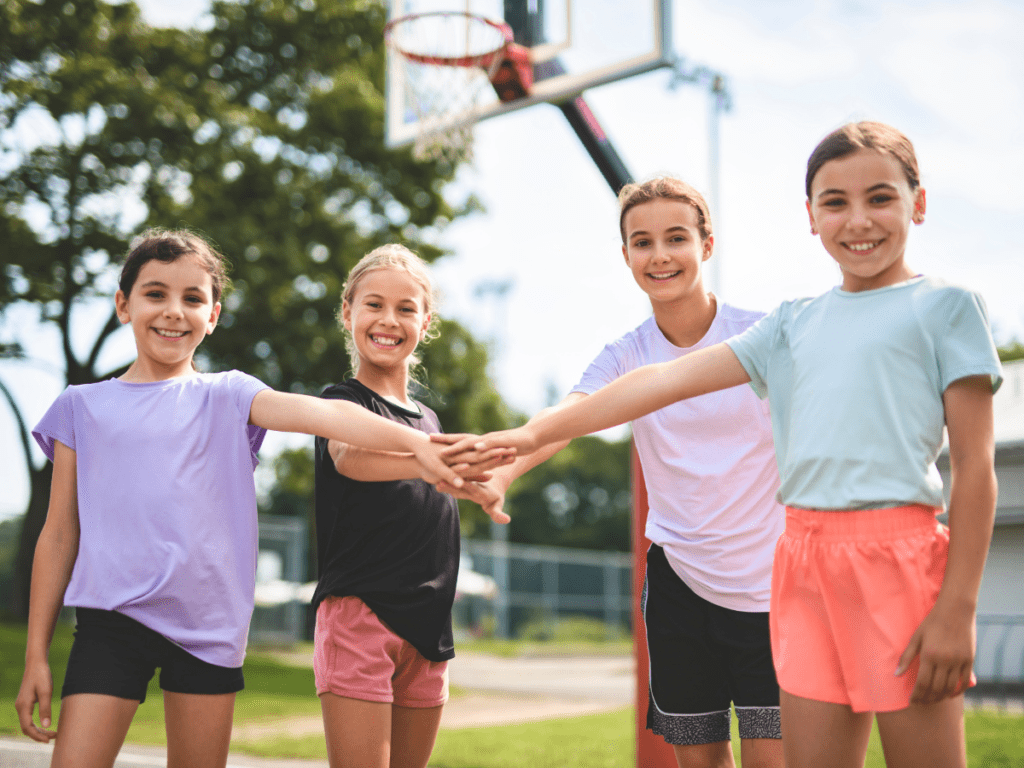Athlete Burnout and Early Specialization
Research from the University of Alberta discovered athlete burnout may have more to do with the social environment than early specialization. Athlete burnout depends on many factors, including opportunities to participate in other sport and non-sport activities, confidence and engagement in skill building, the nature of relationships with coaches and teammates, and having a choice…
Mother’s Day 2019
Parents and caregivers can have a deep and meaningful impact on the development of a child’s physical literacy. To celebrate Mother’s Day this weekend, this Active for Life blog shares insights from elite Canadian athletes about their mother’s influence on their athletic journey.
Developing Executive Functions and Social Emotional Learning Through Sport

This blog was adapted from a SIRCuit article written by Dr. Vicki Harber. For the full article, click here. Within Canada, there is some concern that an ethos of “winning at all costs” has infiltrated youth sport, degrading the quality of the sport experience resulting in reduced participation (Brenner, 2016) and increased injury (Jayanthi et…
Life Skills Blog
A focus on winning at all costs has created sport programs in which building psychological, cognitive, social and emotional skills are largely ignored, yet these are essential ingredients for successful high performance athletes. Today’s blog provides an overview of the development of executive functions and social and emotional learning through sport.
Concussion Risks in Your Sport May be Greater Than You Think
For the athletes in this sport, the concussion risks are real even if brain injuries are rare. It may sound a bit counter-intuitive, but for Canoe Kayak Canada (CKC), concussion education has become a key part of its safety program for a simple, but critically important reason. “Just because we don’t see many concussions in…
Pitching Policies
Excessive pitching is one of the main risk factors for shoulder and elbow injuries among adolescent baseball pitchers. While some organizations have policies in place that limit the number of innings or pitches, these policies may not consider the additional pitches in the bullpen or during warm-up.
SIRCuit – Spring 2019
The Spring 2019 SIRCuit is now available! Check out our newest collection of articles, providing timely and relevant research and insights relating to leadership, athlete development, and high performance sport: Cannabis and Sport: Perspectives from a Seat in the Canadian Senate A Positive Environment for Volunteer Coaches: The Role of Psychological Contract Gender Equity is…
Managing the Risk of Athlete Burnout With or Without Early Specialization
Parents who dream of their children becoming professional athletes, and coaches who believe that single-minded dedication is the only way to reach the top of their sport, have contributed to an increase in early sport specialization. However, there are many researchers, coaches, and athletes who have been pushing back on this trend, citing a range…
Concussion Blog – Ringette
For ringette, putting a values lens on the issue of concussions made decision-making simpler – preventing concussions as much as possible and ensuring athletes recover properly are priorities. When pressure to return to play comes from athletes not wanting to miss out, or parents pushing to have their child back on the ice, clear protocols…
Technique errors in runners
Shin splints, runners’ knee, iliotibial (IT) band pain, and Achilles tendinopathy are common injuries experienced by runners. Research suggests that many of these injuries are the result of simple technique errors. Using 3D infrared cameras, researchers identified common biomechanical patterns, such as side to side pelvis drop and greater forward lean, were more likely to…